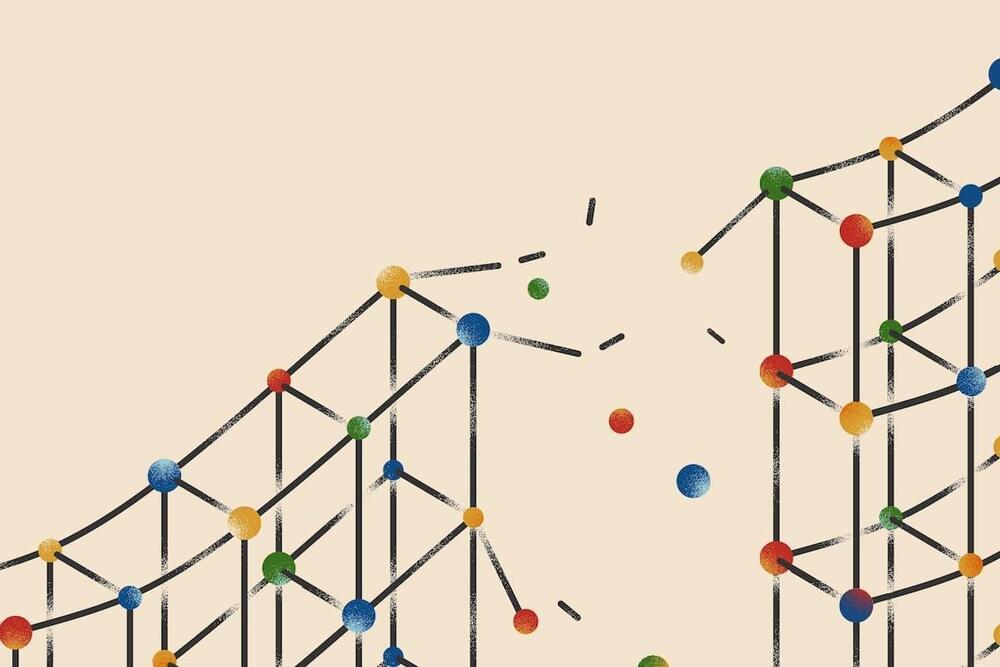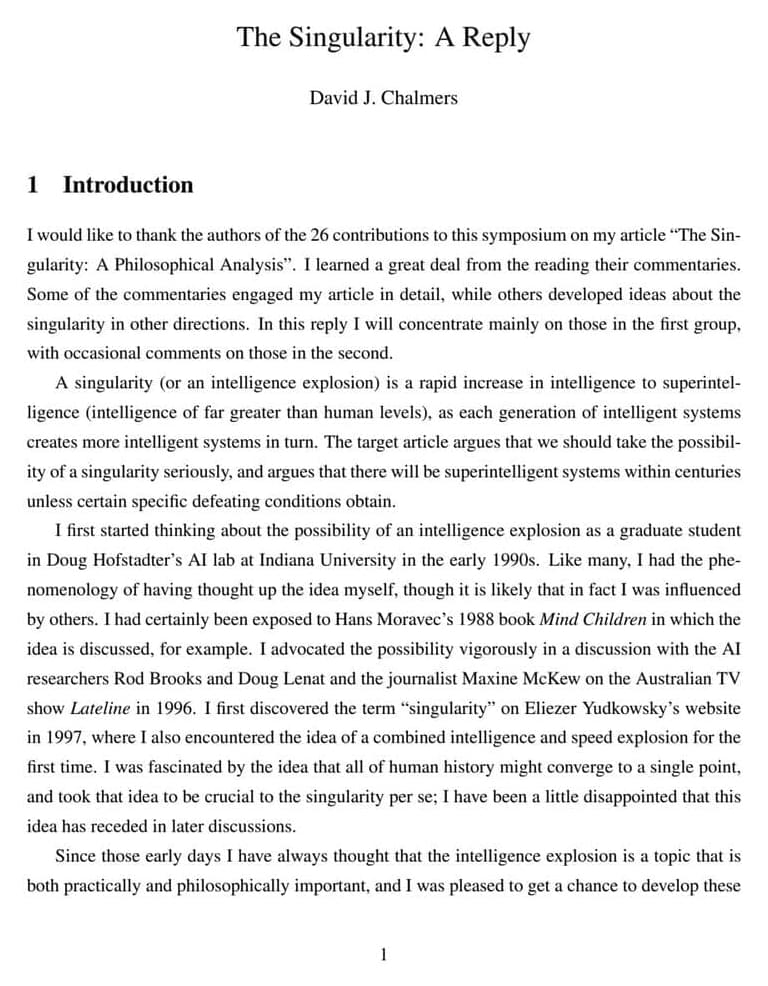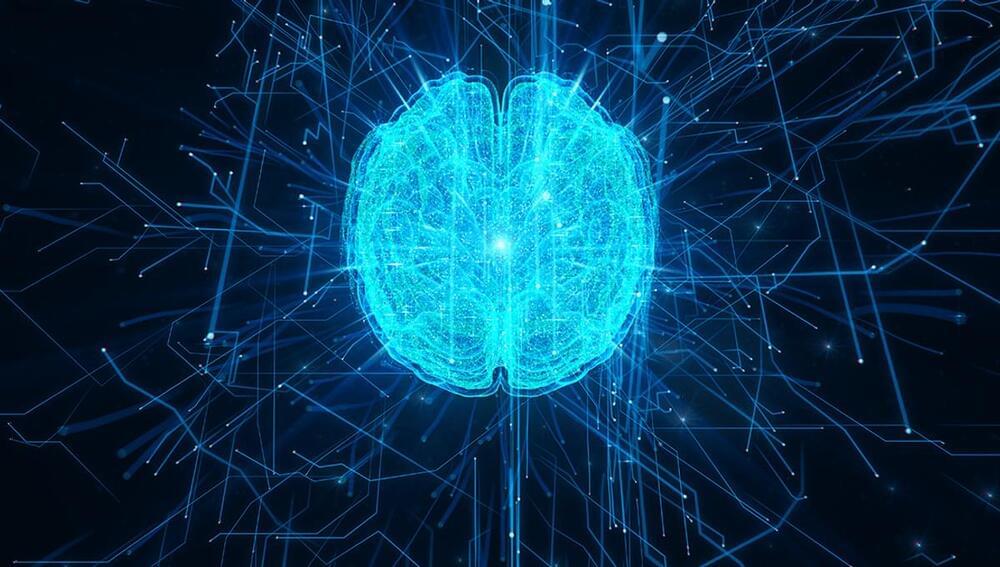What if the AI Singularity actually happened? Robots are seemingly already smarter than us, in this video we explain the singularity.
Category: singularity – Page 37
The Coming Consciousness Explosion | Dr. Ben Goertzel | SCS2022
Dr. Ben Goertzel.
SingularityNET
The Coming Consciousness Explosion.
Bio: Dr. Ben Goertzel is a cross-disciplinary scientist, entrepreneur and author. Born in Brazil to American parents, in 2020 after a long stretch living in Hong Kong he relocated his primary base of operations to the rural Seattle area. He leads the SingularityNET Foundation, the OpenCog Foundation, and the AGI Society which runs the annual Artificial General Intelligence conference.
Dr. Goertzel also chairs the futurist nonprofit Humanity+, and serves as Chief Scientist of AI firms Singularity Studio, Rejuve, SingularityDAO and Xccelerando Media, all parts of the SingularityNET ecosystem. As Chief Scientist of robotics firm Hanson Robotics, he led the software team behind the Sophia robot; as Chief AI Scientist of Awakening Health he leads the team crafting the mind behind Sophia’s little sister Grace.
Dr. Goertzel’s research work encompasses multiple areas including artificial general intelligence, natural language processing, cognitive science, machine learning, computational finance, bioinformatics, virtual worlds, gaming, parapsychology, theoretical physics and more. He has published 25+ scientific books, ~150 technical papers, and numerous journalistic articles, and given talks at a vast number of events of all sorts around the globe.
Before entering the software industry Dr. Goertzel obtained his PhD in mathematics from Temple University in 1989, and served as a university faculty in several departments of mathematics, computer science and cognitive science, in the US, Australia and New Zealand.


Big Tech was moving cautiously on AI. Then came ChatGPT
Welcome to the exponential upward curve phase of the Technological Singularity, folks.
Three months before ChatGPT debuted in November, Facebook’s parent company Meta released a similar chatbot. But unlike the phenomenon that ChatGPT instantly became, with more than a million users in its first five days, Meta’s Blenderbot was boring, said Meta’s chief artificial intelligence scientist, Yann LeCun.
“The reason it was boring was because it was made safe,” LeCun said last week at a forum hosted by AI consulting company Collective[i]. He blamed the tepid public response on Meta being “overly careful about content moderation,” like directing the chatbot to change the subject if a user asked about religion. ChatGPT, on the other hand, will converse about the concept of falsehoods in the Quran, write a prayer for a rabbi to deliver to Congress and compare God to a flyswatter.


Future of the Metaverse (2030 — 10,000 A.D.+)
This video covers the timelapse of metaverse technologies from 2030 to 3000+. Watch this next video about the Future of Virtual Reality (2030 – 3000+): https://bit.ly/3zfjybO.
► Support This Channel: https://www.patreon.com/futurebusinesstech.
► Udacity: Up To 75% Off All Courses (Biggest Discount Ever): https://bit.ly/3j9pIRZ
► Brilliant: Learn Science And Math Interactively (20% Off): https://bit.ly/3HAznLL
► Jasper AI: Write 5x Faster With Artificial Intelligence: https://bit.ly/3MIPSYp.
SOURCES:
• https://www.futuretimeline.net.
• The Singularity Is Near: When Humans Transcend Biology (Ray Kurzweil): https://amzn.to/3ftOhXI
Patreon Page: https://www.patreon.com/futurebusinesstech.
Official Discord Server: https://discord.gg/R8cYEWpCzK
💡 On this channel, I explain the following concepts:
• Future and emerging technologies.
• Future and emerging trends related to technology.
• The connection between Science Fiction concepts and reality.
SUBSCRIBE: https://bit.ly/3geLDGO
Disclaimer:
Cybernetic Theory: The Code of Reality & Our Future as Cybergods | Talk
CYBERNETIC THEORY: THE CODE OF REALITY & OUR FUTURE AS CYBERGODS: presenting my published works in a recent talk. Topics include evolutionary cybernetics, computational physics, consciousness, philosophy of mind, cybernetic theory, Omega Point cosmology, physics of time, simulation theory, Global Mind, AGI, VR, Metaverse, Cybernetic Singularity, transhumanism, posthumanism, cybernetic immortality, synthetic telepathy, mind-uploading, neurotechnologies, Fermi Paradox, Dark Matter, Dark Energy, the Argument for Cybertheism, and more.
The main 45-minute slide presentation is followed by a 15-minute Q&A session. This presentation is in Russian with slides and subtitles in English.
Russian-American futurist Alex M. Vikoulov presents his published works in a talk titled CYBERNETIC THEORY: THE CODE OF REALITY & OUR FUTURE AS CYBERGODS at the Rotary Club, The Grand Autograph Hotel, Novosibirsk, Russia, on July 19, 2022. The main 45-minute slide presentation is followed by a 15-minute Q&A session. This presentation is in Russian with slides and subtitles in English (for subtitles turn on caption in settings).
Author publications referenced:
The Syntellect Hypothesis: Five Paradigms of the Mind’s Evolution (2020), available as a Kindle eBook, paperback, hardcover and Audible audiobook: https://www.amazon.com/Syntellect-Hypothesis-Paradigms-Minds…atfound-20
Toward Singularity — Neuroscience Inspiring AI
Takes a look at how neuroscience is inspiring the development of artificial intelligence. Our amazing brain, one of the most complicated systems we know about, is inspiring the development of intelligence machines. Machines that may well surpass our own intelligence and could birth a new species on the planet. Opportunity and danger lie beyond the singularity!
For those who purchase the video on Vimeo https://vimeo.com/ondemand/towardsingularity there are extended interviews that give further insight into biologically inspired AI technology.
Genre: Documentary.
Duration: 1 hour 6 minutes.
Subtitles: English.
Release: 19th February, 2020
Production: Perfekt Studios.
Director: Matthew Dahlitz.
Director of Photography: Jachin Dahlitz.
Soundtrack: Matthew Dahlitz.
CHAPTERS:
00:00 Introduction.
02:41 Our Amazing Brain.
08:13 Brain Inspired AI
16:23 Current AI
24:00 Smart Robots.
31:37 Integration.
34:33 Concerns.
37:19 Toward AGI
44:06 Dangers.
51:52 The Future.
01:02:32 Close & Credits

Artificial Intelligence May Hit The Singularity Within 7 Years, Researchers Claim
Researchers have claimed that artificial intelligence (AI) will reach the singularity within seven years, after attempting to quantify its progress.
Translation company Translated, presenting their work at an Association for Machine Translation in the Americas conference, explained that they first began testing machine translation technology in 2011. The team settled on a metric to measure AI progress, which they’ve called “Time to Edit” (TTE). Simply put, it is the time it takes a human translator to edit a translation produced by another human or an AI.
Over the years, the TTE for AI-translated texts has come down fairly consistently, leading Translated to predict the date when AI hits the singularity, when the time is equivalent to human translators.